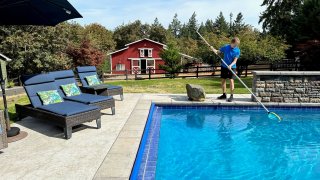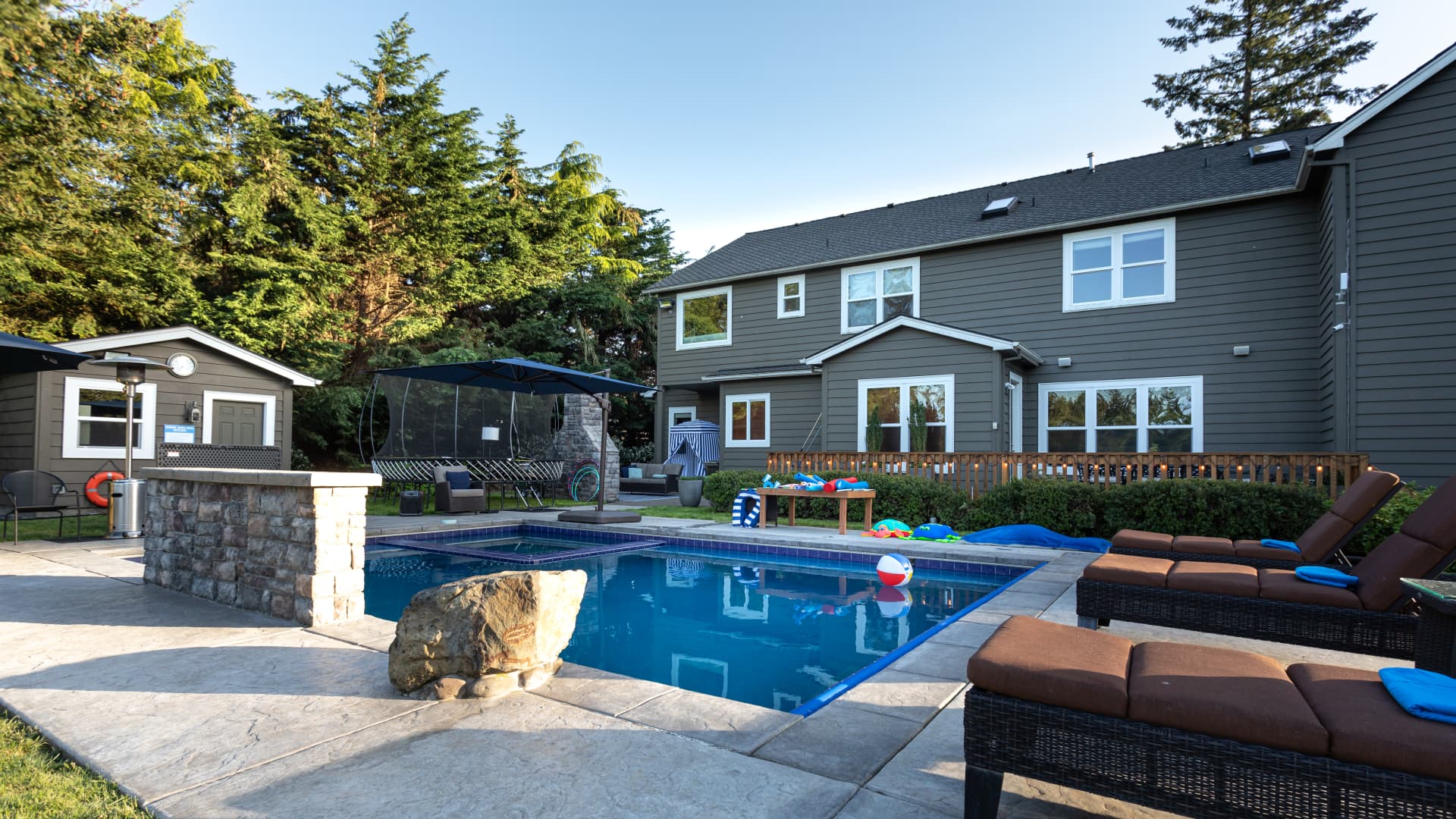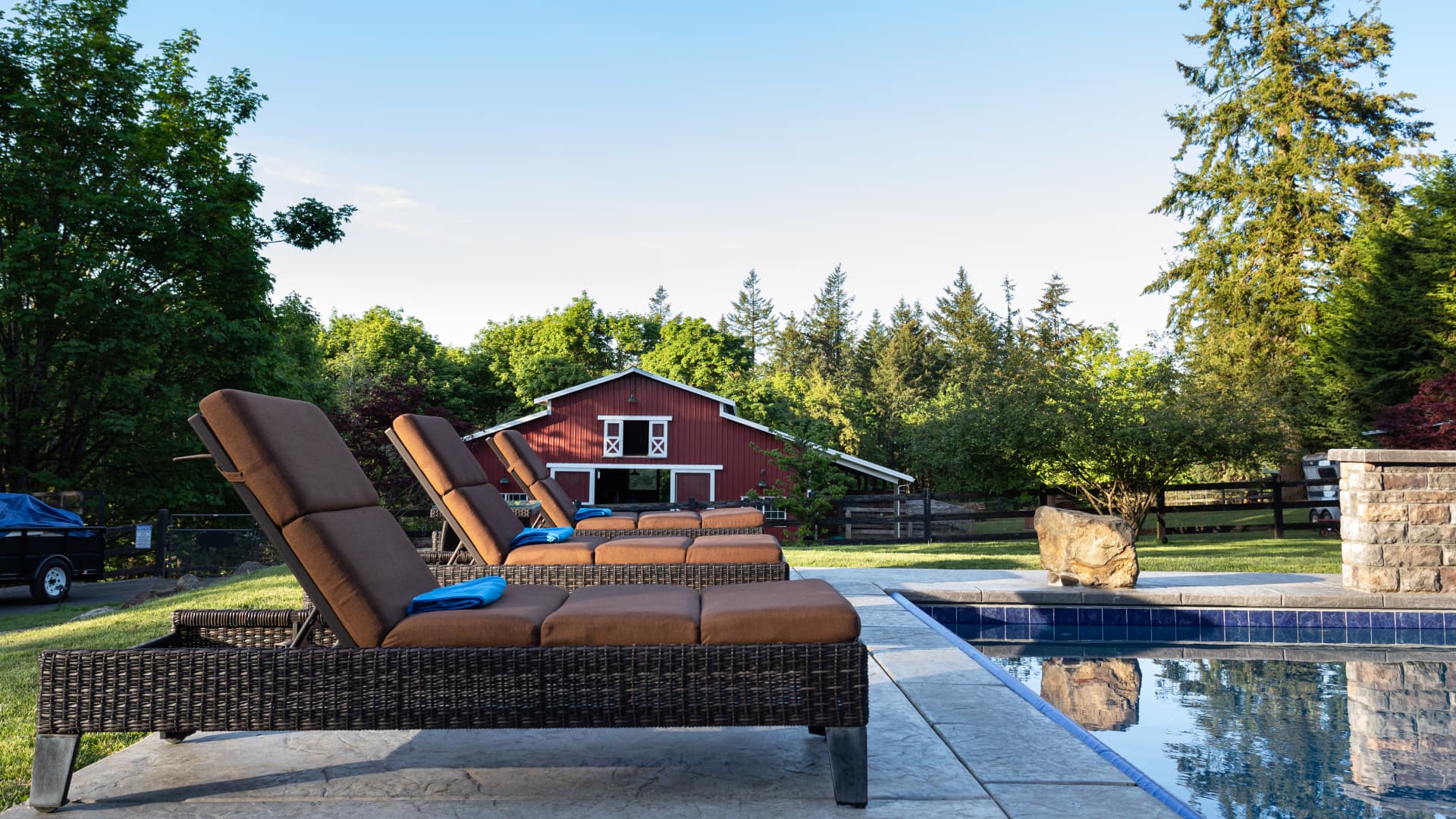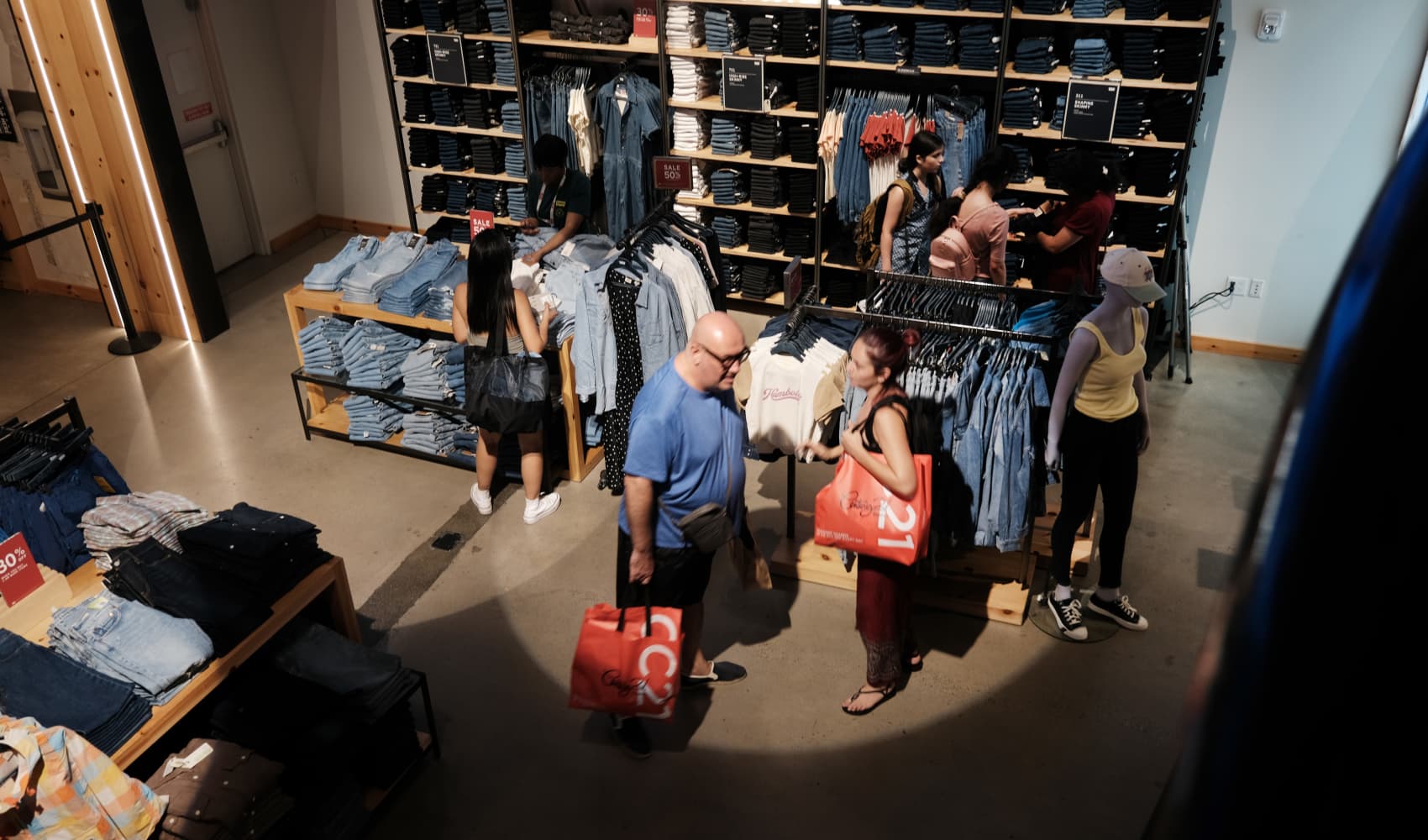
On the surface, Jim Battan's side hustle seems like an American dream: He's made $195,379 in revenue since September 2020 by renting out his amenity-packed backyard pool to over 10,000 people.
But Battan, a 58-year-old IT consultant, says he cautions others against mimicking his side hustle, even though he is Swimply's highest earner out of 25,000 pools in the U.S., Canada, and Australia.
"If people think they're going to build a pool and turn it into something that will earn $200,000 in two years, it's a little bit of a fantasy," warns Battan. "I've put a ton of work into it, and you have to have the right mindset. You have to have the right circumstances and a competitive advantage no one else has," he says.
Here are the three reasons why Battan's six-figure side hustle isn't for casual pool owners.
Get Connecticut local news, weather forecasts and entertainment stories to your inbox. Sign up for NBC Connecticut newsletters.
1. Renting out your pool as a side hustle is competitive
When Battan joined Swimply two years ago, the Covid-19 pandemic had shut down public pools and there were only about seven other Swimply pools near West Linn, Oregon, the town of 27,000 people where Battan and his wife live. Now, there are at least 88 pools available to rent near the Portland, Oregon suburb, according to the site.
Battan says that number is growing — and the competition has more than halved his pool's traffic.
Money Report
"[Demand] is down even more than 50% over the last couple of months," Battan says. "Kids are back in school and at soccer practice. On Swimply, there's been phenomenal growth on the host side, so people have a [larger] array of pools to choose from."
Despite decreasing demand, Battan continues to out-earn all other pool-owners on Swimply. He pulled in $117,000 last year, according to documents reviewed by CNBC Make It, but that number has dropped to $58,500 in 2022.
In July, Swimply co-founder and CEO Bunim Laskin told CNBC Make It that increased competition just means the platform is growing, and that successfully run pools will always have swimmers.
"As with any marketplace, there are ups and downs for individual hosts," Laskin said at the time. "As the word gets out about Swimply, and we add additional hosts to the platform, we are also adding just as many additional users."
Battan doesn't regret joining the platform, though some side-effects of Swimply's growth — from increased competition to occasionally slow customer support — have been frustrating. "It's been a challenge for me," he says.
2. Maintaining the pool is expensive
Battan's 26-foot by 18-foot pool was built in 2012, when his three daughters lived at home and could enjoy it during summers. But Battan, who says he never shies away from a project, wanted the pool to be a luxury experience. He spent $110,000 on its construction, which includes a pool house and attached spa pool that he keeps at 130 degrees year-round.
"I do think of it as an investment," Battan says of the pool. "When we moved in, I knew that would add to the value of the home. And this home has more than doubled in price in the last few years."

Maintenance is costly: He says he's spent $41,344 on disinfecting and leveling the pool's chemistry since launching on Swimply.
Keeping the pool in tip-top shape is what keeps customers returning, he says, which is particularly important given that Battan estimates roughly 35% of his swimmers are returning guests.
Still, Battan says the pool has paid for itself and then some: With his extra earnings, he built a "man cave" in his house.
3. The income is anything but passive
Because Battan and his wife enjoy vacationing in luxury resorts, they want their pool to mimic a five-star experience. Along with its nearby amenities, he keeps pool toys and towels — plus heated blankets in the winter — within arm's reach.
They also try to check in with every group of swimmers to ensure a positive experience.

Battan and his wife can get 26 bookings per week at the height of summer. The time required to see to customers adds up: They spend up to 14 hours per week on the side hustle, so the extra income is anything but passive.
Now that they've hit $200,000 in revenue, Battan says they're scaling back the pool's availability, primarily because of how much work it takes to maintain the side hustle. It's now only listed on weekends, for regulars and in response to special requests.
They're also looking to sell the house in the next couple of months to downsize and save money to travel.
"I'm really happy I joined Swimply: The money's been great, and I've felt happy that so many families have been able to get out and exercise," Battan says. "I would still recommend it to people who are up for a challenge, and know what they're getting into — but I'm starting to feel a lot more relieved in scaling back hours."
This story is part of CNBC Make It's series Six-Figure Side Hustles, featuring people of all ages and walks of life who have found ways to make more money, often in addition to their full-time jobs, and who have great advice, routines, and habits to share. Got a great story to tell? Let us know! Email us at AskMakeIt@cnbc.com.
Sign up now: Get smarter about your money and career with our weekly newsletter
Don't miss:
This 59-year-old’s lucrative side hustle: Earning $16,000 a month selling recycled fire pits on Etsy
Entrepreneur and TED Talks speaker’s best career advice: ‘Suck slightly less than everyone else’






